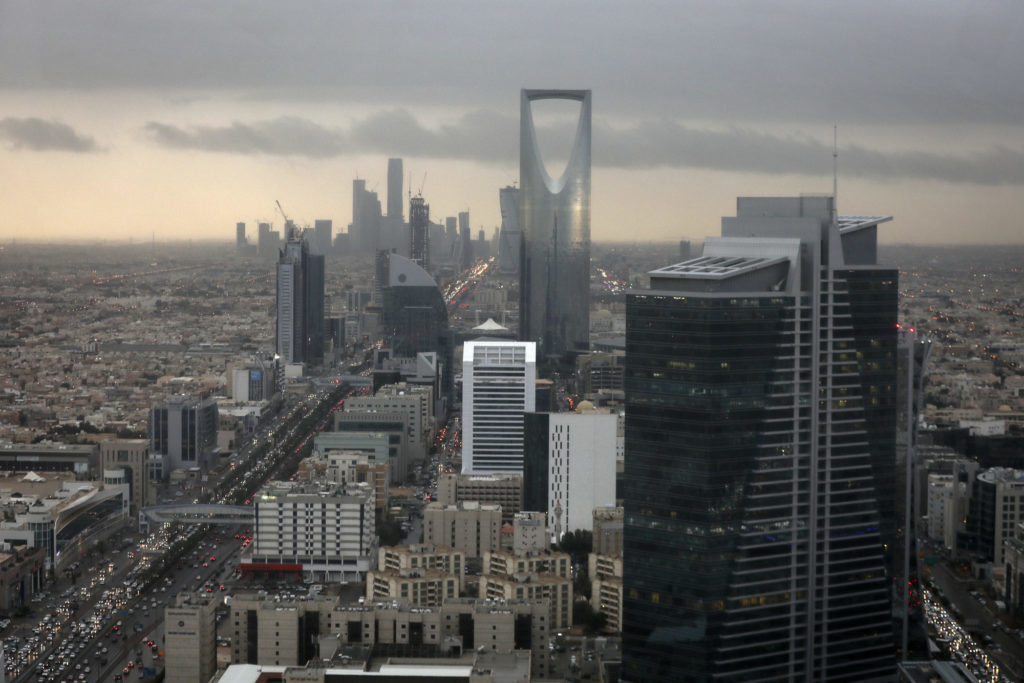
Saudi Arabia took the extraordinary measure of temporarily halting oil shipments via the Bab el-Mandeb Strait, a key shipping lane for crude at the southern tip of the Red Sea, after two tankers were attacked by the Yemeni Houthi militia.
The two vessels, each carrying 2 million barrels of oil, belong to the Saudi National Shipping Co., Energy Minister Khalid al-Falih said in a statement posted online. One of the two was hit and suffered minor damage; there were no injuries or spills as a result.
The Bab el-Mandeb Strait, off the coast of Yemen, Djibouti, and Eritrea, connects the Red Sea with the Arabian Sea and is one of the world’s major waterways for crude oil and other petroleum products. Still, it’s significantly less crucial than the better-known Strait of Hormuz offshore Iran.
“In the interest of the safety of ships and their crews and to avoid the risk of oil spill, Saudi Aramco has temporarily halted all oil shipments through Bab el-Mandeb with immediate effect,” al-Falih said.
Saudi Arabia can still use its East-West mega-pipeline to ship crude from its oil fields in the Persian Gulf into the city of Yanbu on the Red Sea, bypassing the strait and keeping the European market within regular reach. The East-West pipeline has a capacity of about 5 million barrels a day.
Oil investors took the halt in stride. Brent crude rose as much as 1.1 percent in London before paring gains to trade 0.6 higher at $74.36 a barrel at 12:56 p.m. Singapore time on Thursday. U.S. West Texas Intermediate in New York was little changed at $69.39.
European Path
A full closure of Bab el-Mandeb, which at its narrowest point is just 18 miles (29 kilometers) wide, would force tankers sailing from Saudi Arabia, Kuwait, Iraq and the United Arab Emirates “around the southern tip of Africa, which would add to transit time and cost,” according to the U.S. Energy Information Administration.
The waterway allows for exports into the European market via either the Suez Canal or the Sumed pipeline that links the Red Sea with the Mediterranean through Egypt.
The EIA estimates that in 2016 — the last year with reliable data — 4.8 million barrels a day of crude and petroleum products flowed through the strait, with about 2.8 million going northbound toward Europe, and another 2 million sailing from Europe into the Middle East and Asia. The strait is an important route for European refined oil products to reach global markets.
By comparison, the Strait of Hormuz saw significantly higher flows — 18.5 million barrels a day — in 2016, according to the EIA. Iran’s revolutionary guard has threatened to halt shipments via Hormuz in response to U.S. sanctions.
Iran-Backed Militia
Saudi Arabia has been fighting with the Houthi militia in Yemen — backed by Iran — for more than three years.
“Fingers will certainly be pointed at Iran, a long-term backer of the Houthis, although the Saudis and others overstate the extent to which Iran influences the Yemeni group,” said Richard Mallinson, geopolitical analyst at consultant Energy Aspects Ltd. in London.
Aramco, the Saudi state-owned company, kept flows open through the narrower Strait of Hormuz during the 1984-1988 period of the Iran-Iraq war called the tanker war, when both countries attacked vessels in the Persian Gulf, and also during the 1990-91 first Gulf War.